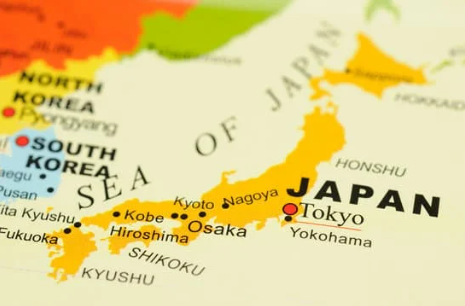Japan now relies more on foreign workers. With fewer young people and not enough workers, many industries need help. This change creates both opportunities and challenges for businesses and job seekers.
Japan needs more workers because of its aging population and fewer people can work. Industries like healthcare, manufacturing, retail, and hospitality struggle to find enough staff. To fix this, the government has made visa rules easier so more skilled and semi-skilled workers can come and work. This article explains why Japan needs more foreign workers, which industries need them most, and how to apply for a work visa, including the requirements and process.
How Japan’s International Workforce is Growing
Japan’s foreign workforce is growing fast, reaching 2.3 million in 2024. That’s about 254,000 more than the year before, the biggest increase since 2008. This shows Japan relies more on foreign workers to keep its economy strong and fill job gaps.
In the last 10 years, the number of foreign workers in Japan has nearly tripled. In 2014, there were 788,000, and by 2019, it grew to over 1.6 million. Even during COVID-19, Japan made it easier for foreign workers to find jobs.
Japan’s labor rules are changing as more industries rely on foreign workers. With fewer local workers, the government has added more visa options and changed immigration rules. To keep the economy strong, Japan must support and include foreign workers.
Industries Facing the Most Impact of Labour Shortage in Japan
Japan lacks workers in industries that need staff every day. Retail, hospitality, and production have big worker shortages, so businesses hire foreign workers to keep running.
Retail
Japan’s retail sector struggles with fewer local workers, especially young employees. Convenience stores, supermarkets, and department stores now rely more on foreign workers for jobs like cashiers, sales, and stocking shelves. To help them fit in and serve customers better, many stores offer language support and cultural training.
Hospitality
Japan’s hotels, restaurants, and tourism businesses need more workers as they keep getting more visitors. Foreign workers help with guests, food, and cleaning. After the pandemic, businesses keep hiring them to stay open and serve customers in different languages.
Production
Manufacturing companies in Japan depend on foreign workers, especially in food processing, electronics, and car making. Many come through the Technical Intern Training Program (TITP) to learn job skills. They help keep factories running and supply chains stable, even with fewer local workers.
Visa Choices for International Workers in Japan
Japan has different work visas to fill job shortages. These visas help skilled and semi-skilled workers find jobs. It’s important to know the rules and requirements for each visa before working in Japan.
Specified Skilled Worker (SSW) Visa
The Specified Skilled Worker (SSW) Visa is for foreign workers in industries that need more staff. It allows them to work in areas like construction, caregiving, food services, and manufacturing. There are two types of this visa:
- SSW-1: Requires a skills assessment and a Japanese language proficiency test. It is renewable but does not allow long-term residence or family sponsorship.
- SSW-2: Grants long-term residency and family sponsorship. It is available only to workers with advanced skills and experience in eligible industries.
Highly Skilled Professional Visa
The Highly Skilled Professional Visa uses a points system to attract experts in technology, finance, research, and education. Points are given based on education, work experience, income, and research achievements. Benefits include:
- Priority processing for visa applications
- Fast-track eligibility for permanent residency
- Permission to bring family members and domestic staff
Work Visa for Engineers, Professionals, and Instructors
This visa is for skilled workers in IT, engineering, and education. It lets foreign professionals work in jobs that need special knowledge and technical skills. The requirements include:
- A confirmed job offer from a Japanese employer
- Relevant qualifications or professional experience
- Compliance with Japan’s immigration regulations
Technical Intern Training Visa
The Technical Intern Training Visa is part of Japan’s Technical Intern Training Program (TITP). It gives hands-on experience in jobs like manufacturing, farming, and construction. The goal is to help workers from developing countries learn new skills and take them back home. However, the initiative has faced criticism due to:
- Strict working conditions and limited job mobility
- Reports of low wages and worker exploitation
- Challenges in transitioning from training to full employment
How to Obtain a Work Visa in Japan
Getting a work visa for Japan takes careful planning. To make the process easier, you need to follow essential steps, prepare the right documents, and meet the visa requirements.
Researching the Right Visa Type
The first step to getting a work visa for Japan is choosing the right one for your skills and job. Japan has different visas for skilled workers, interns, and specialists. Pick the visa that matches your job, experience, and language skills.
Preparing Necessary Documents
Once you’ve identified the appropriate visa, the next step is to gather the required documentation. Major documents include:
- Diplomas, degrees, or certifications relevant to the job position.
- Employment records, reference letters, or portfolio work that demonstrate your expertise in your field.
- Depending on the visa type, proof of Japanese language proficiency may be required, particularly for positions with direct customer interaction.
- Valid identification documents and passport-sized photos for your visa application.
Finding an Employer Sponsor
For most work visas, like those for engineers, professionals, and teachers, you need a job offer from a Japanese employer. The employer sponsors your visa and provides important documents, such as your job contract and company details. Employers usually help with the visa process, but you should make sure they understand the requirements.
Consulting with an Immigration Expert
Japan’s visa process can be complicated, especially if you don’t know the requirements. An immigration expert or legal advisor can help make it easier. They guide you on documents, visa eligibility, and the application process. They also help solve any problems and prevent delays.
Frequently Asked Questions
Do I Need to Know Japanese to Work in Japan?
Language requirements depend on the job and visa type. Some positions, especially customer-facing roles, require Japanese proficiency, while technical or international roles may not.
Can I Switch Jobs While on a Work Visa?
Yes, but you must update your visa status and obtain approval from the Immigration Bureau. Your new employer must also sponsor your visa.
How Can I Find a Job in Japan as a Foreigner?
Job seekers can use recruitment websites, networking events, and company-sponsored programs. Many employers specifically look for international talent in labor-shortage sectors.
Conclusion
Japan will likely have more foreign workers in the future. There are still challenges, like job rules, visa processes, and worker rights, but changes are happening. Japan needs to balance its economy and immigration policies to succeed. For foreign workers, this means more job opportunities and a chance to thrive in Japan.






